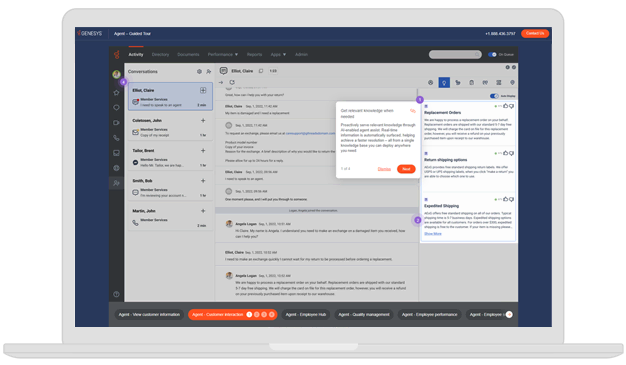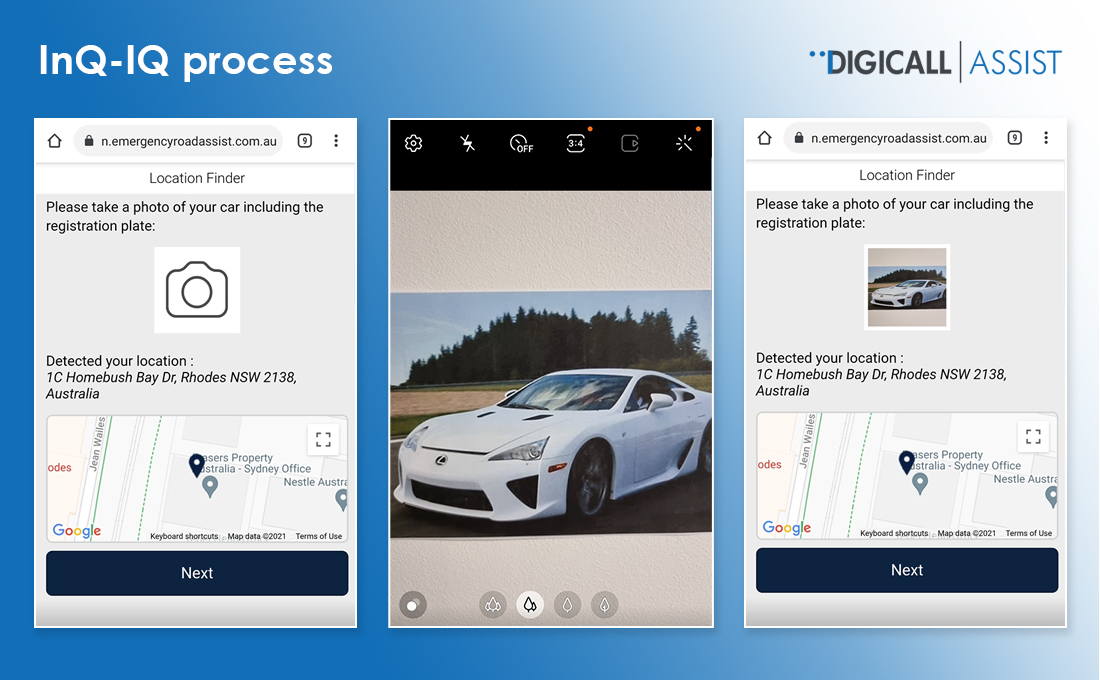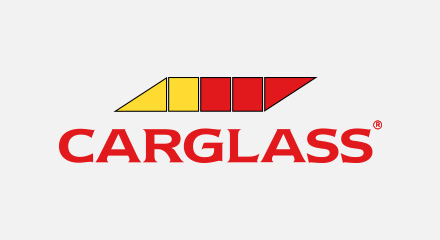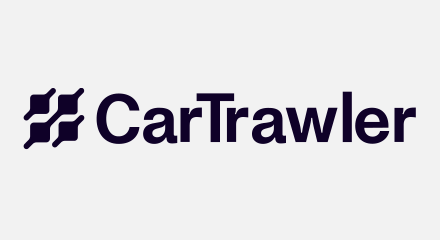Together with Synergy Enterprise Solutions, the company customized an API integration between Genesys Cloud and its bespoke dispatch system. The integration allows the Genesys platform to identify customer policies correctly, based on customer phone numbers and the client line. Additionally, the solution automatically populates case information to the dispatch system, freeing agents of manual data input.
This improvement results in reduced backend work, increased agent productivity and better CX. With the automation of case reporting, the company saved over 20 hours a month in manual work.
Improving agent performance with an all-in-one approach
Before adopting the Genesys Cloud platform, Digicall Assist experienced clunky reporting processes with the old system, requiring a dedicated email address to receive daily reports. Shift leaders also had to calculate each agent’s shift manually for the next day. Aside from being time-consuming, it also left the metric open to human errors. And it was hard to track agents’ time spent on and off queue because there was no real-time visibility of agent availability.
Genesys Cloud mitigated the company’s reporting and workforce scheduling woes by providing robust workforce engagement capabilities. Easy access to reports allows team leaders to track and monitor agent performance — ensuring agents achieve their goal of 95% on-queue time. This saved around 13 hours each month in manual calculations.
Digicall Assist also takes advantage of the professional development capabilities. Agents can now track their development progress. In the previous system, downloading a call was necessary to provide agents with feedback. Now, supervisors can instantaneously release calls and provide immediate feedback with call monitoring capabilities. And agents can view their performance statistics in real time. These capabilities encourage agents to set goals and engage in healthy competition, positively impacting employee engagement and motivation.
“Call monitoring capabilities have made a real difference in how quickly our new team members can improve, particularly in handling tricky calls. Having near-instant reviews and coaching available as part of their on-the-job training means they feel much more confident going into the next call,” said Goss.
With Genesys Cloud, Digicall Assist can put a greater emphasis on employee happiness. “We view the time saved as an opportunity to reduce stress and spend time on higher-value work,” added Goss. “When our employees are happy, customer experience improves, too.”
Unlocking safety and productivity with a flexible platform
The Genesys Cloud platform is compliant with the ISO 27001 data protection certificate, a crucial requirement for some of the company’s clients and prospects. “Given that our clients are under increasing scrutiny regarding data protection, the certification gives our clients the confidence that their brand reputation, as well as ours, is protected. The Genesys platform was a key part of this certification,” said Curtin.










